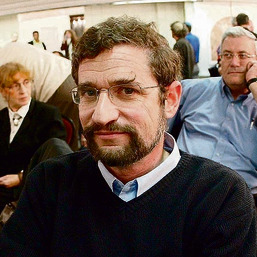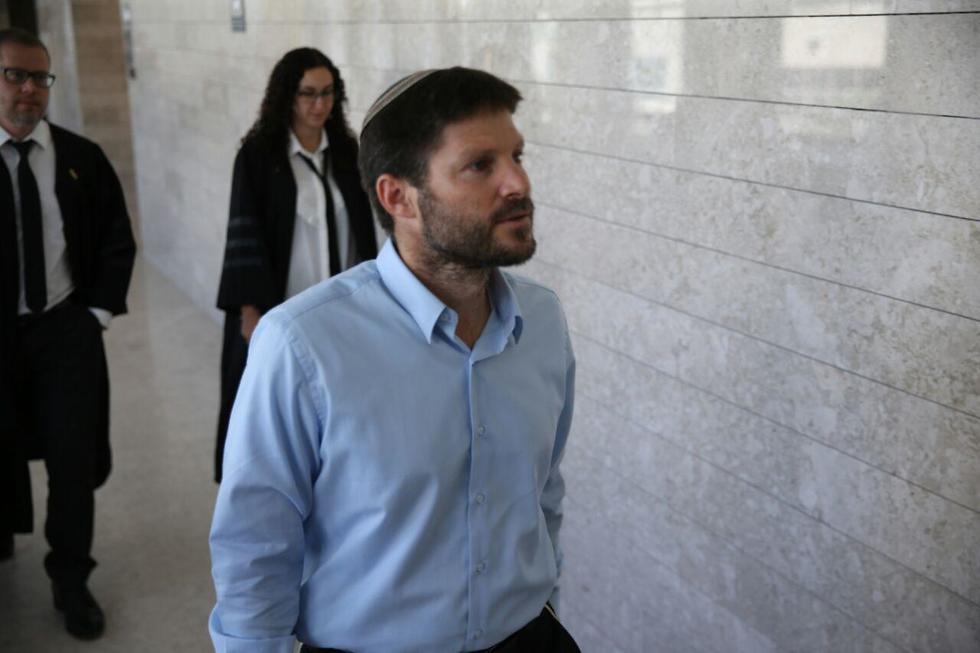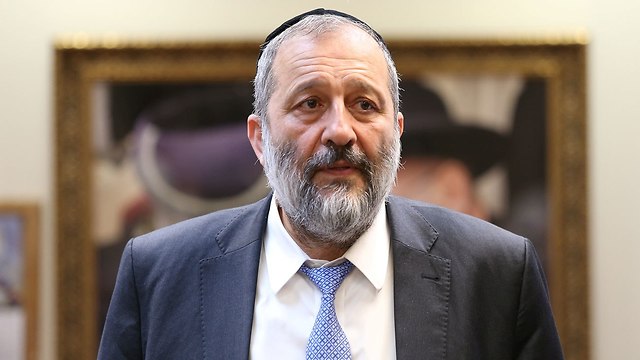
Haredi MKs vow to prevent recognition of private conversion
In an unprecedented ruling, the Jerusalem District Court recognizes the Jewish status of a woman who converted in a private religious court; Ultra-Orthodox MKs slam the 'earth shattering' ruling, while Deri tries to minimize its significance.
MKs Moshe Gafni (United Torah Judaism) and Betzalel Smotrich (Bayit Yehudi) announced on Friday that they will once again promote a High Court bypass law that will prevent the state from recognizing conversions performed outside of the Chief Rabbinate.
The MKs intend to draft a bill at the start of the Knesset's winter session, an initiative that has already caused a crisis in the coalition.
The Jerusalem District Court ordered the Interior Ministry to recognize the Jewish status of a woman, Y., who converted in a private religious court (Beit Din). This is a precedent that may affect the status of thousands of Israelis who have undergone an Orthodox conversion process outside of the Chief Rabbinate in recent years.
In an interview with Yedioth Ahronoth, Y. expressed her frustration with the current conversion process.
"I was waiting for this for a long time. The Rabbinate is making a mistake in its approach toward hundreds of thousands of immigrants without a religion status who serve in the army, pay taxes, and are denied the most basic right of marrying their loved ones," Y. said.
Y. converted through "Conversion According to Halacha," a project established by senior liberal Zionist rabbis who maintain that the state system is too strict with the converts.
Hundreds of Israelis, many of them minors, have already undergone conversion through the project, but no one has been recognized as a Jew by the Interior Ministry until Y. About a year and a half ago, Y. wanted to update her personal status in the government's population registry, so she petitioned the court. In response, the district court issued a declarative ruling confirming that she is Jewish.
Despite the ruling, which recognized private Orthodox conversions officiated by a different court, the state objected to the woman's request and argued that it should be rejected.
The state requested that the court wait until the High Court of Justice ruling regarding the Law of Return. Reform and Conservative activists petitioned the court for recognition of their conversions in accordance with the law.
Their petition has been in filed in 2004 and hearings regarding the matter have been delayed ever since, due to changes on the political front.
In the past, the state refused to recognize any type of private conversion that was conducted in Israel — whether in the strictest ultra-Orthodox courts or in Reform conversions, for the purpose of marriage within the framework of the rabbinate, and for registration of converts as Jews in the population registry.
In 2002, the court ruled that conversions performed by the liberal streams of Judaism would be recognized by the Interior Ministry for purposes of population registration, but not under the Law of Return; a matter which is still pending before the High Court of Justice.
In 2016, a nine judge panel recognized conversions performed by a private Orthodox court, and recognized one of those converted Jewish under the Law of Return.
The Supreme Court ruling caused an uproar in the world of Halacha (Jewish law), but was not perceived as a principled ruling but rather as an individual ruling that dealing with that petitioner alone.
In fact, Y. is the first woman to be recognized as a Jew on the basis of that precedent. The court that officiated her conversion was headed by Rabbi Yehuda Gilad, a former MK in the Meimad faction of the Labor Party.
Following a day of silence, MK Gafni called Friday the precedent courts ruling as a "miserable decision" and said it could cause "irreparable damage."
In his movement's newspaper, Yated Ne'eman, Gafni promised to "fix" the court's ruling after the holidays.
A member of his faction, Yaakov Asher, added: "We will not allow this attempt to harm the concept of a Halachic conversion." The newspaper warned against "the danger of serious assimilation" following the recognition of private conversions.
Uri Maklev (United Torah Judaism) slammed the High Court for the fundamental ruling claiming that "time and time again it intervenes and tries to wear down the authority of the religious courts, the principles of religious law, and the fundamentals of religion.
"The court is despised among all sectors, it has lost public legitimacy, and its actions call for legislation that will reduce its power and authority," Maklev added.
The editor of the n Yated Ne'eman, Israel Friedman, called the legal system "malignant", and referred to it as "anti-religious liberal terrorism."
The editorial then described the new decision as "an eruption into the Holy of Holies" and concluded that the court consists of "the new generation of the wicked of Israel" who wield "a destructive hammer.”
The Bayit Yehudi Party also promised to promote the conversion law at the first opportunity. MK Smotrich told Ynet: "I am not sure about the hesitancy of the ultra-Orthodox parties regarding this matter. I hope that it is not out of concern for the private court of Rabbi Nissim Karelitz (a senior ultra-Orthodox Haredi judge who performs private conversions), that they are willing to allow conversions approved by the Reform and the like."
Smotrich was referring to the dilemma facing the ultra-Orthodox parties between the uncompromising struggle to preserve the religious status quo, and the graceful disregard of significant developments in the matter of religion and state.
On the one hand, the Haredi electorate, with the backing of its media, expects them to fight against any attempt to constrict the rabbinate's authority regarding religious services. On the other hand, there is a clear political interest for quiet; at least until the status of yeshiva students is formalized and they are exempt from drafting to the army.
The ultra-Orthodox parties fear that renewing the demand for approval of a conversion law bypassing the High Court of Justice could create a real coalition crisis and, together with the complex matter of enlistment, may even lead to the dissolution of the government and prompt early elections.
Deri issues a weak response
Accordingly, Shas chairman Aryeh Deri tried to minimize the significance of the court's decision to avoid being dragged into this conflict at a problematic time for him.
Although a senior official involved in conversions claimed that the ruling was "earth shattering" and would lead to the "breaching of the dam" and the recognition of thousands of converts, Deri insisted that "this is nothing new" and stressed that in any case it does not constitute a "substantive recognition of conversions."
The indifference of the interior minister is significant in light of the battle that the Haredi parties and the chief rabbis have fought over the past year.
In fact, the bill promoted by the heads of Shas and United Torah Judaism in June 2017 (which was reintroduced in a more balanced version and abandoned again) was proposed as a measure against the recognition of private conversions. Precisely at the moment of truth, when his fears were realized, Deri chose to dismiss and belittle the issue.













